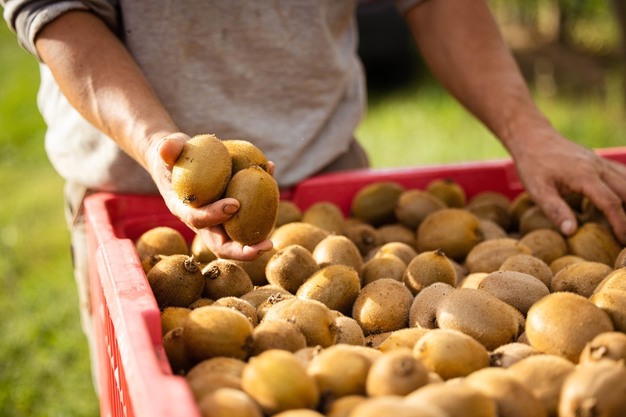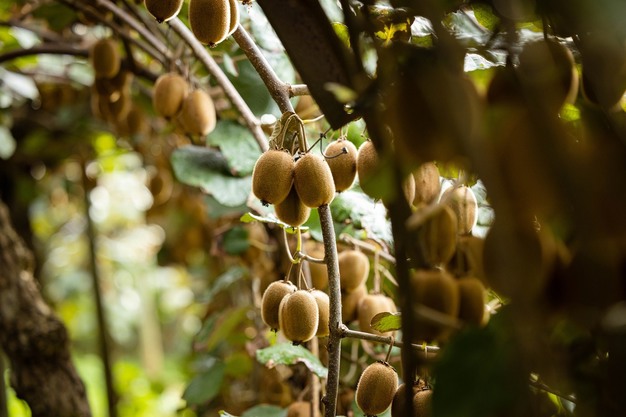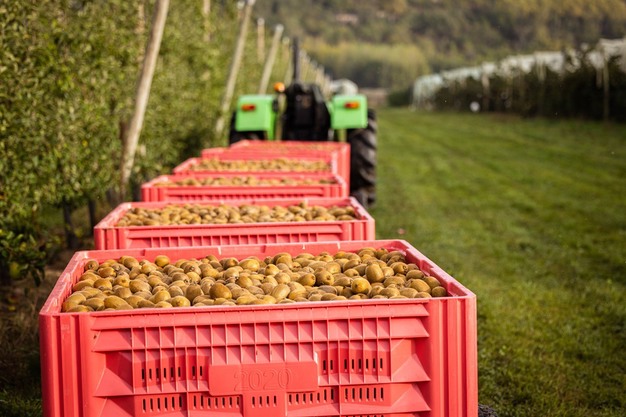French kiwis have entered a market that is still well supplied with the New Zealand origin this year. It has been a difficult transition, but one that should intensify this week with the end of the Dutch season. "Up until now, there have been very few switches, because retailers were bound by commitments to New Zealand kiwis. But French volumes have been rather confidential until now. November 6th was the official campaign launch, and the early varieties arrived on the market around the 20th of October. With the end of the New Zealand season, sales of French kiwis should pick up over the next two weeks," explains Alexandre Cancel of Vergers Cancel. The New Zealand season has been particularly long this year. "For both green and yellow kiwis, New Zealand has gone very far into the season this year, with large volumes. We usually have a gap of two to three weeks between now and the start of the European season, which allows us to place our French kiwis, but this year, we were able to switch directly.

35% drop in volumes this year
Another characteristic of the season is the significant drop in volumes, even greater than initially forecast. "In the run-up to the harvest, we had estimated yield losses at -15% or even -20%. However, we ended the harvest with a 35% drop, with volumes of around 6,500-7,000 tons, compared with 10,000 tons last year. It is a shortfall we were not expecting at all. This year, growers have high expectations when it comes to adding value to their products to make up for this loss of yield, so we must perform well in terms of sales. But I have the impression that the whole of Europe is suffering from this lack of volume, except perhaps Greece, which seems to have had a good season. Therefore, we should not be overwhelmed by European production, even if we still have to contend with imports from Italy, Portugal and Greece, which may tempt French distributors in the first price segment."

High sugar levels and good shelf life expected
This loss of volume can be explained by a number of factors. "The lack of cold weather this winter was obviously a major factor. We had fewer buds in the spring and the poor weather during flowering caused a number of flowers to rot. But there is also a phenomenon of root asphyxia responsible for the decline of the orchards. It is a phenomenon that we still know very little about, that we are finding hard to control, and that is affecting the whole of Europe." In terms of quality, however, nothing has changed. Alexandre Cancel is as satisfied as ever. "The quality is really great. We have a very good product with a high sugar content, and the harvest took place in good conditions. The fruit will improve in fridges and we should not encounter any storage problems.

An ambitious replanting program
To cope with this decline in orchards and continue to meet the demand, Vergers Cancel embarked on a replanting program two years ago. "Eight to ten years ago, we could reach 30-35 T/Ha. Today, the orchards have aged and we obtain 20-25T on average. We have undertaken and completed a major replanting program covering 200 ha over the last 5 years. We are also continuing with ambitious plans for the next 3 years. These new orchards will significantly increase our volumes from the 2025 harvest. For the yellow varieties, our progress continues, with 55 hectares by 2025, and the aim of increasing production by 1,500 tons by 2028. Finally, for red kiwis, we will reach 800 tons for 40 hectares cultivated in 2028.

DNA analysis to combat francization
French kiwi growers are pinning their hopes on a new tool that has recently been developed to combat the problem of francization. "This is a technology based on the study of DNA, which is a fruit's identity card, making it possible to determine where it was grown. This tool is 99% reliable and could help to counter the phenomenon of francization, especially in years like this when there is a shortfall. A real asset for the sector!

Photo credits: Vergers Cancel
For more information:
Alexandre Cancel
Vergers Cancel
Phone: +33(0)5 63 04 82 13
[email protected]
https://www.vergers-cancel.fr/
